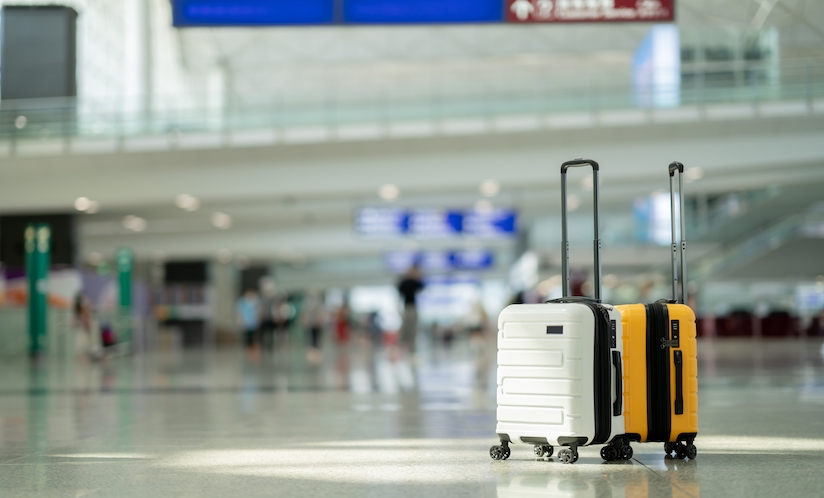6 Tips for Healthier Summer Travel

Now that summer is fully underway, many people are looking forward to an upcoming vacation. Jodie Guest, PhD, professor of epidemiology, shares her advice on how to stay healthy during travel.
Take precautions against respiratory illnesses.
- Wastewater surveillance indicates COVID-19 and summer colds are increasing across the U.S. World Health Organization data show that cases are also on the rise internationally.
- Even if you are not in a group at higher risk for respiratory illnesses, if you are traveling with those who are, they may benefit from your staying healthy.
- Wearing a mask, keeping up on the latest vaccinations, being aware of outbreaks, and washing your hands are all great ways to avoid catching illnesses.
Guest's reminder: “If you are up to date on your vaccinations, your risk for COVID is not down, but your risk of worse consequences from COVID is down.”
Put some extra thought into international travel.
- If you are going abroad, you can check out the Center for Disease Control and Prevention travel website for information about the status of various diseases in your destination country.
- Find out what vaccinations or treatments you need before you leave. Common examples include prescriptions for malaria pills and vaccinations for yellow fever and typhoid.
- Make sure to check this ahead of time to ensure you have time to see a clinician!
Take important supplies with you.
- Pack some over-the-counter medications you might not have access to on your trip, such as pain relievers, indigestion aids, and antihistamines. Bring enough prescription medication to last your whole trip, plus a bit extra just in case.
- Carry hand sanitizer with you. It is a great alternative when you are on the go and washing your hands with soap is not possible. Disinfectant wipes are perfect for cleaning high-touch surfaces.
- Bring barrier methods to practice safe sex.
Guest’s tip: “It’s best to take protection with you . . . [don’t] assume that you can get it in every location.”
Prepare for crowded environments.
- The more crowded the environment, the more likely you are to be around someone who is sick. If you do get sick, make sure to isolate, get plenty of rest, and stay hydrated.
- If you are going on a cruise, keep an eye out for symptoms of norovirus, such as vomiting and diarrhea. If there is space to do so, spread out away from other people on buses, trains, and in airports.
- Whatever form of transportation you take, washing your hands often, avoiding those who are sick, and wearing a face mask may reduce your risk of catching something.
Give thought to what you eat and drink.
- Trying new dishes is one of the most exciting parts of travel, but it is important to ensure you are consuming safe foods on your trip. Prioritizing foods with immune-boosting vitamins can be especially helpful for staying healthy, too.
- Avoid raw fruits and vegetables, unpasteurized dairy products, and undercooked foods. Dry, packaged, or factory-sealed food items are more often safe.
- Make sure to find out if the water is considered safe. If it is not, stick to bottled water for drinking, cooking, and brushing your teeth.
Guest's suggestion: “It’s so much fun to try new foods. Make sure your hot foods are hot and cold foods are really cold. Avoid pre-cut fruit and stick to fruits you can peel.”
Monitor your health upon return.
- Some travel-related diseases have delayed symptom onset. If you come home and notice anything out of the ordinary, such as a fever or rash, it is a good idea to see a clinician.
- Vector-borne diseases are in season in many areas across the country. Wearing long sleeves and using insect repellant can help you avoid bites.
Guest’s final piece of advice: “A little bit of planning will probably make things easier if you do end up getting sick somewhere outside of your home.” Make sure to stay hydrated, active, and have a great trip!